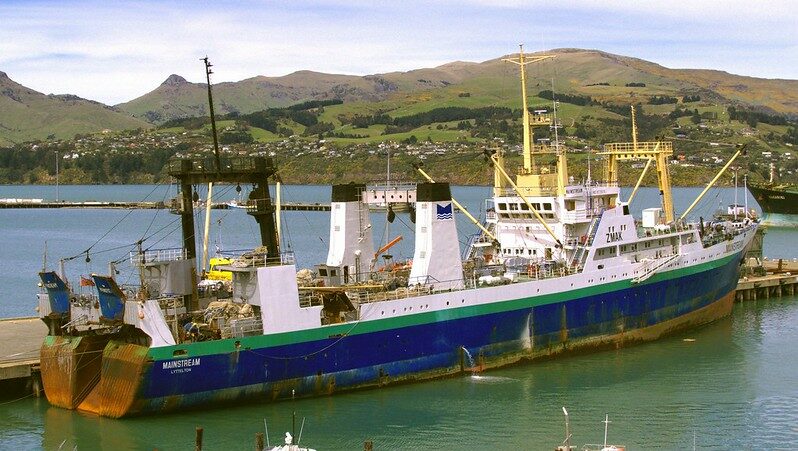Trawling the seabed for fish and seafood leaves an ecological wasteland in its wake. For that reason alone, the practice has long been targeted by environmentalists.
A major study in Nature this week revealed that stirring up sediment at the bottom of the ocean also releases carbon dioxide equivalent to the emissions of Germany or aviation each year. This is not counted in greenhouse gas inventories.
The study gives an extra reason to scrap fishing subsidies and protect sensitive marine areas. And quantifying the carbon impact of trawling brings new policy solutions into play.
Could industrial trawling be incorporated into carbon pricing schemes? Some governments are already considering whether they could sell carbon credits for restricting trawling, one of the study authors told us – which raises many of the same concerns as forest carbon offsetting.
First comes the hard work of updating national carbon accounts in a consistent way to reflect the latest evidence. For some small coastal and island countries it will be a radical adjustment.
This week’s stories…
- Indian lawmaker submits private bill to achieve net zero emissions by 2050
- Scientists push to add “huge” fish trawling emissions to national inventories
- Lebanon increases climate goal despite political and economic turmoil
- Coal-backing Japanese bank bids for Green Climate Fund partnership
- Green Climate Fund whistleblowers urge US to take its money elsewhere – until ‘toxic’ workplace is fixed
…and climate conversations
- How the shipping industry can halve climate-warming black carbon in the Arctic – Sian Prior, Clean Arctic Alliance
- Joe Biden’s climate ambitions must include land rights for Congo forest communities – Serge Ngwato, Greenpeace Africa
Empty promises?
Youth activists are taking on net zero in climate strikes around the world today, under the banner #NoMoreEmptyPromises. Specifically, their beef is with vague and distant pledges not backed up by immediate action.
In a classic example of the dissonance, an Indian lawmaker from the ruling party has proposed setting a 2050 net zero target in law – while defending recent coal mine expansion in his district.
Lending some academic rigour to the campaign, a well-timed commentary in Nature sets out three ways to separate credible long-term climate strategies from greenwash.
Aghan Youth Taft joins @YACAPhilippines and all the climate activists in today’s Global Climate Strike!
Let us clamor as we raise our calls for climate justice and demand the major polluters for #NoMoreEmptyPromises. #CleanUpStandardChartered #RaiseYourStandards pic.twitter.com/4FatR5zfA7
— Agham Youth Taft Avenue (@aghamyouth_taft) March 19, 2021
